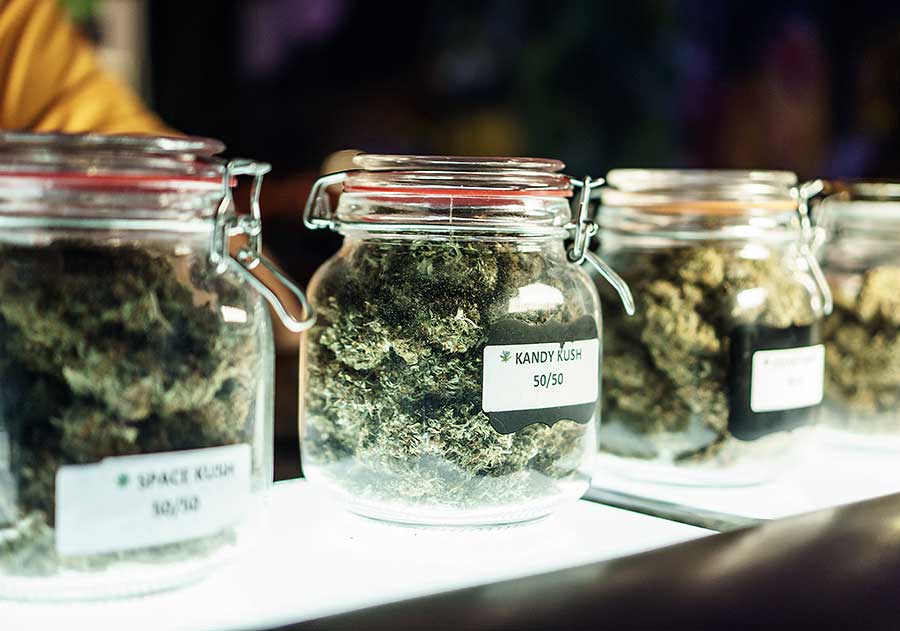Celebrating Cultivars:
A Paradigm Shift for Cannabis Terminology
In the world of cannabis, language plays a crucial role in shaping perceptions and understanding. As the industry evolves and matures, it is essential to reevaluate the terms we use to describe the plant and its various varieties. One such shift worth considering is the replacement of the term “strain” with “cultivar” when discussing different cannabis varieties. In this article I aim to explore why using the term cultivar instead of strain when talking about cannabis is not only more scientifically sound but also cultivates a deeper appreciation for its diverse and complex nature.
Understanding the Terminology
 The term “strain” has long been ingrained in the cannabis lexicon, often used to describe different types of the plant. However, this terminology carries connotations more fitting for microorganisms or infectious diseases. In reality, the diverse range of cannabis varieties can be better defined by the term “cultivar.”
The term “strain” has long been ingrained in the cannabis lexicon, often used to describe different types of the plant. However, this terminology carries connotations more fitting for microorganisms or infectious diseases. In reality, the diverse range of cannabis varieties can be better defined by the term “cultivar.”
Cultivar, short for cultivated variety better reflects the intricate and deliberate cultivation processes used in cannabis production. Unlike the word “strain,” which implies a singular lineage or genetic origin, cultivar acknowledges the intentional human intervention and selective breeding techniques that have shaped the vast array of cannabis phenotypes available today.
Recognizing Genetic Variation
Cultivar acknowledges the immense genetic diversity within the cannabis plant, capturing the various traits, flavors, and effects that each distinct variety offers. This term highlights the extensive efforts and expertise required to create and preserve these unique expressions of cannabis. By emphasizing cultivar, we honor the craftsmanship and artistry of growers who dedicate their lives to curating exceptional experiences for consumers.
Highlighting Craftsmanship
The use of cultivar in cannabis discourse shifts the focus from a one-dimensional approach to a celebration of craftsmanship. Cultivators invest tremendous amounts of time, effort, and knowledge into selecting, crossbreeding, and stabilizing different varieties. By adopting cultivar as our preferred term, we recognize and honor the skill and passion that goes into producing the myriad flavors, aromas, and effects found in the cannabis world.
Encouraging Responsible Consumption
Cultivar encourages a more responsible and informed approach to cannabis consumption. As the industry continues to evolve, consumers are increasingly seeking a deeper understanding of the products they choose. By using cultivar, we help facilitate meaningful conversations about the specific characteristics, chemical profiles, and potential effects of different cannabis varieties. This terminology shift empowers consumers to make informed choices based on their preferences and desired experiences.
Building Bridges with the Agricultural Community
The term cultivar is widely recognized and used in the field of agriculture. By aligning cannabis terminology with established agricultural practices, we bridge the gap between traditional farming and cannabis cultivation. This synergy can foster collaboration, knowledge sharing, and research opportunities that benefit both industries. Additionally, it helps destigmatize cannabis by emphasizing its legitimacy as a valuable agricultural commodity.
It Is What It Is, So That’s What You Should Call It
Language has the power to shape our perception of the world around us. By embracing the term “cultivar” instead of “strain” when discussing cannabis, we move towards a more accurate, respectful, and horticulturally precise vocabulary. This linguistic shift supports responsible cultivation, encourages the preservation of genetic diversity, and allows for a deeper appreciation of the craft and artistry behind cannabis cultivation. Let us embrace this evolution in language and foster a more nuanced understanding of this remarkable plant.
0 Comments
Leave a reply
You must be logged in to post a comment.









